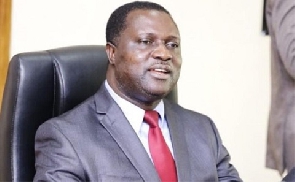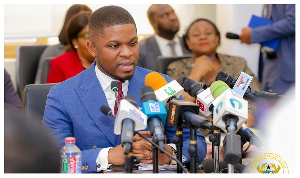Former Deputy Education Minister and Member of Parliament representing North Tongu constituency Samuel Okudzeto Ablakwa has exposed his successor Deputy Education Minister, Dr Yaw Adutwum over a lie he told on a live Joy News show that Ghana was last on PISA ranking in 2015.
Over the past decade, the OECD Programme for International Student Assessment, PISA, has become the world’s premier yardstick for evaluating the quality, equity and efficiency of school systems. By identifying the characteristics of high-performing education systems, PISA allows governments and educators to identify effective policies that they can then adapt to their local contexts.
Speaking on a JoyNews Panel, Dr. Adutwum claimed that Ghana was ranked at the bottom of the PISA ranking in 2015 under the erstwhile NDC government, adding that he checked the data that very day and was sure.
NDC MP Okudzeto Ablakwa who was also on the panel however disputed it and said Ghana was not featured on the PISA ranking in 2015 at all and that the country at the bottom was rather the Dominican Republic.
The Deputy Minister insisted he was right until a check by Joy News production team confirmed that indeed Mr. Okudzeto Ablakwa was right that Ghana was not featured and the country at the bottom of the PISA ranking was the Dominican Republic.
Several viewers expressed disappointment in the deputy Education Minister who is loved by the public for his knowledge on education but chose to stoop low in peddling a lie to paint the erstwhile NDC administration black.
Dr. Adutwum did not apologize. He kept a straight face throughout the rest of the session in total embarrassment.
The latest PISA assessment in 2015 focused on science. From taking a painkiller to determining what is a “balanced” meal, from drinking pasteurised milk to deciding whether or not to buy a hybrid car, science is ubiquitous in our lives. And science is not just test tubes and the periodic table; it is the basis of nearly every tool we use – from a simple can opener to the most advanced space explorer. More important, science is not only the domain of scientists. In the context of massive information flows and rapid change, everyone now needs to be able to “think like a scientist”: to be able to weigh evidence and come to a conclusion; to understand that scientific “truth” may change over time, as new discoveries are made, and as humans develop a greater understanding of natural forces and of technology’s capacities and limitations
What is PISA ranking
The Organisation for Economic Co-operation and Development (OECD) launched the triennial survey of 15-year-old students around the world known as the Programme for International Students Assessment, or PISA.
PISA assesses the extent to which 15-year-old students, near the end of their compulsory education, have acquired key knowledge and skills that are essential for full participation in modern societies. The assessment focuses on the core school subjects of science, reading and mathematics. Students’ proficiency in an innovative domain is also assessed.
The assessment does not just ascertain whether students can reproduce knowledge; it also examines how well students can extrapolate from what they have learned and can apply that knowledge in unfamiliar settings, both in and outside of school. This approach reflects the fact that modern economies reward individuals not for what they know, but for what they can do with what they know.
General News of Wednesday, 1 January 2020
Source: mynewsgh.com













